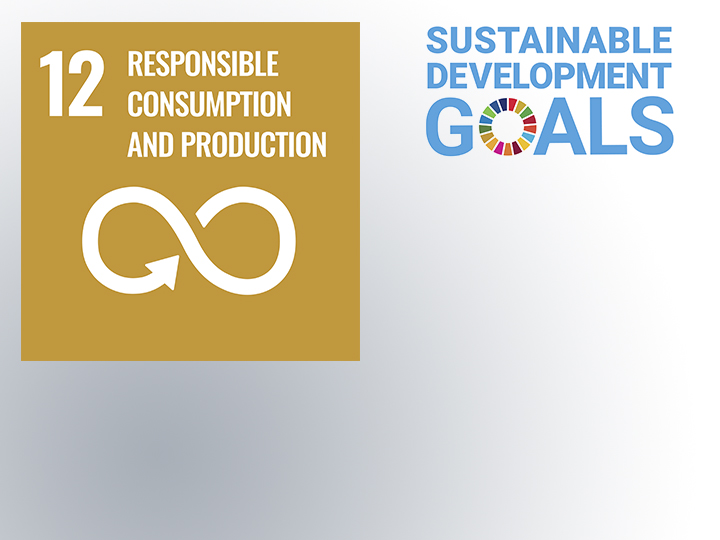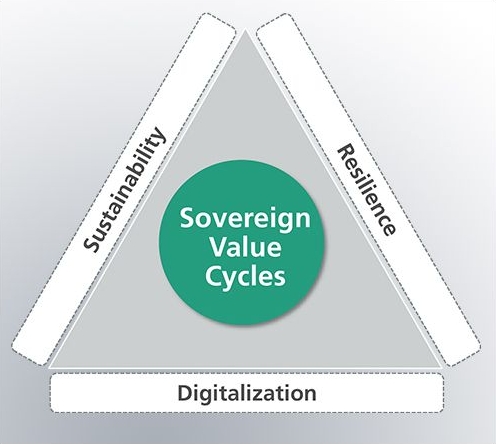| Duration: | 08/2020 - 12/2020 |
| Contracting Authority/ Sponsors: | Internal Fraunhofer funding program Innopush |
| Project Partners: | 14 Fraunhofer-Institute: IAIS, IAP, ICT, IEG, IGB, IML, IMW, IPA, ISE, IST, IVV, IWU, LBF, UMSICHT (Included: the Fraunhofer Cluster CCPE) |
| Project Focus: | |
| Website: | www.circonomy.fraunhofer.de |
Sovereign Value Cycle
Fraunhofer Charter for Sustainable Development Goal (SDG)12


Create values, act with values
This is Fraunhofer's joint mission for the implementation of sustainable, intelligent and circular value creation. The goal of meeting global climate targets under the 2030 Agenda also pursues the United Nations' Sustainable Development Goal 12, which describes "sustainable consumption and production patterns." In today's society, sustainability is an increasingly important value that has an enormous impact on consumer behavior. As a result, previously conventional structures of value creation are being called into question, demanding rethinking and new concepts. Also in the context of the Sustainable Development Goal 12 of the United Nations, production and consumption should be made more sustainable through circular economy. With this intention, Fraunhofer is developing a Fraunhofer Charter in cooperation with 14 Fraunhofer Institutes, which sets the course for research and development of sustainable and circular value creation. In this way, the previously linear and fossil-based value creation is to be transformed into a sovereign and circular one, and new infrastructures and production concepts are to be created.
For more sovereignty
The global interconnection of trade routes and value chains is often characterized by a lack of transparency, so that supply chains are usually difficult to control and compliance with environmental standards is not guaranteed. But so far, there is a lack of alternative routes and industrialized nations are highly dependent on trading partners and networks within global supply chains. At the same time, environmentally conscious actions have a high priority in our society and are also an important factor from an economic point of view. For this reason, there is an urgent need for a shift towards sovereign value creation cycles that replace conventional patterns of global supply chains and bring social and ecological framework conditions to the fore.
Our goal
The Fraunhofer Charter for Sovereign Value Cycles is intended to act as a guardrail for application-oriented research and development. With a knowledge-based approach, entire value cycles will be digitally represented, thus enabling the exploration of new production and consumption concepts that will allow companies to have transparent and smarter processes while helping consumers to make more sustainable choices. This creates new infrastructures and services, such as consulting and IT services, that can be adapted to individual needs and circumstances. Currently, 16 institutes are developing special concepts for the leading markets of energy and food, chemicals and construction.